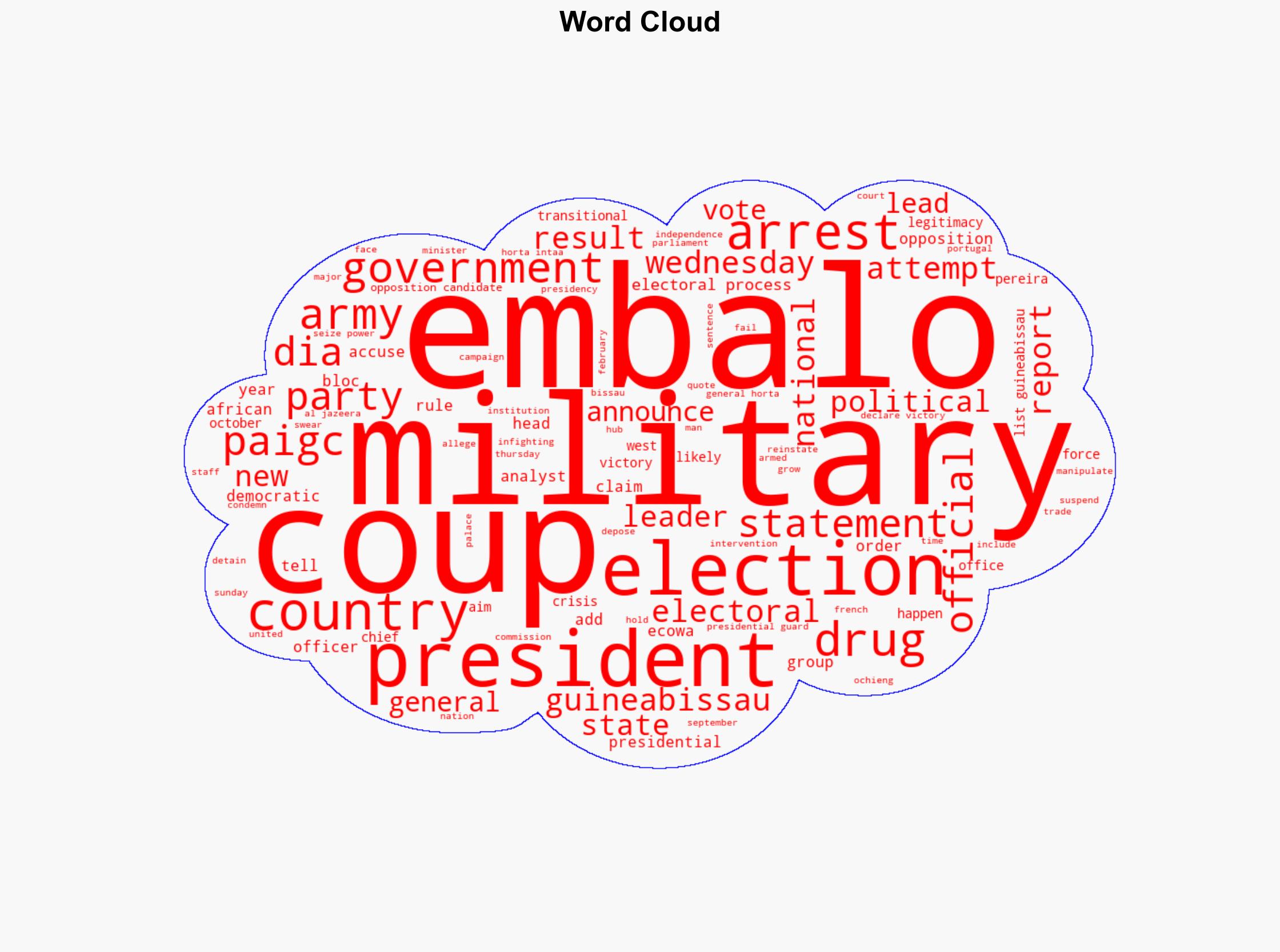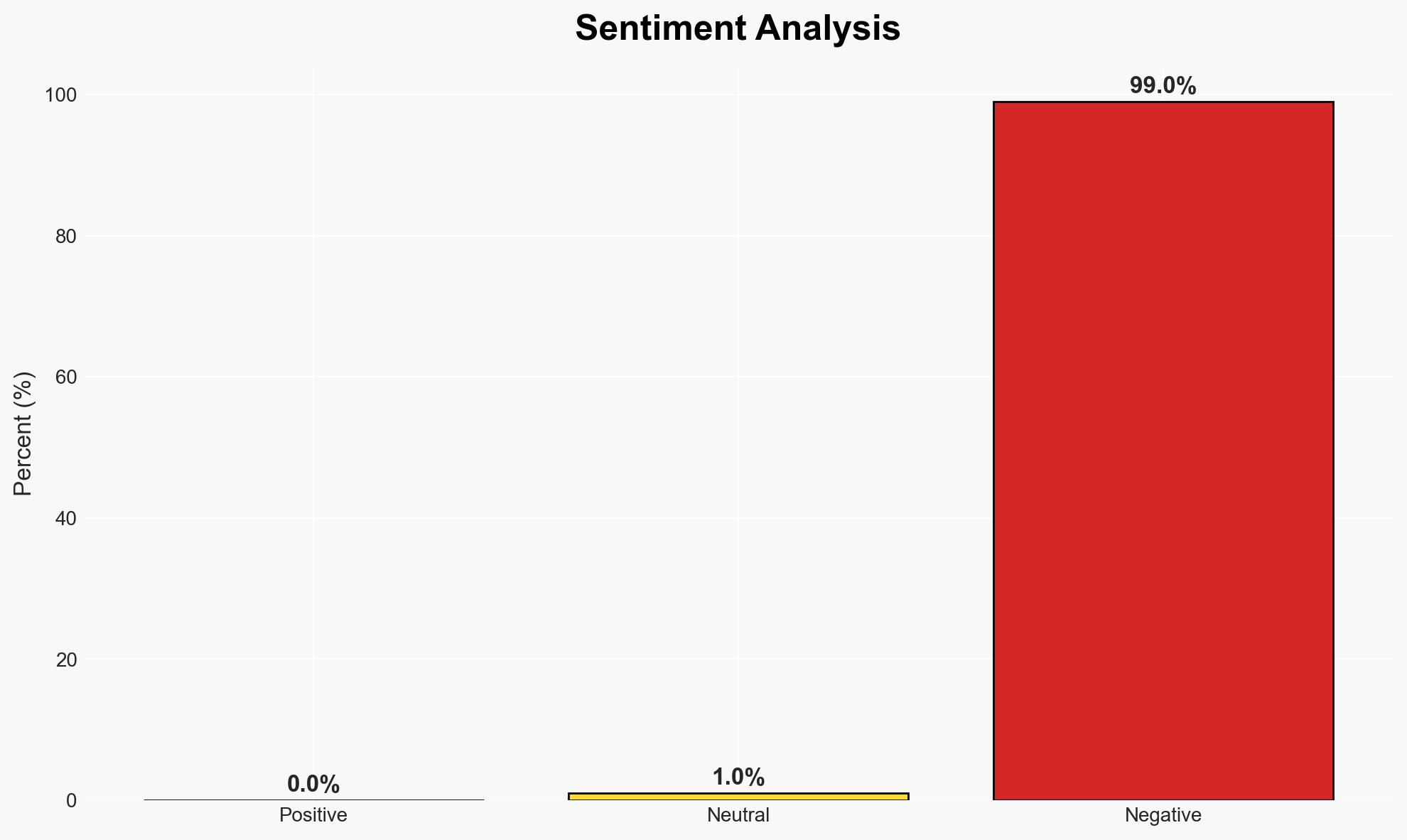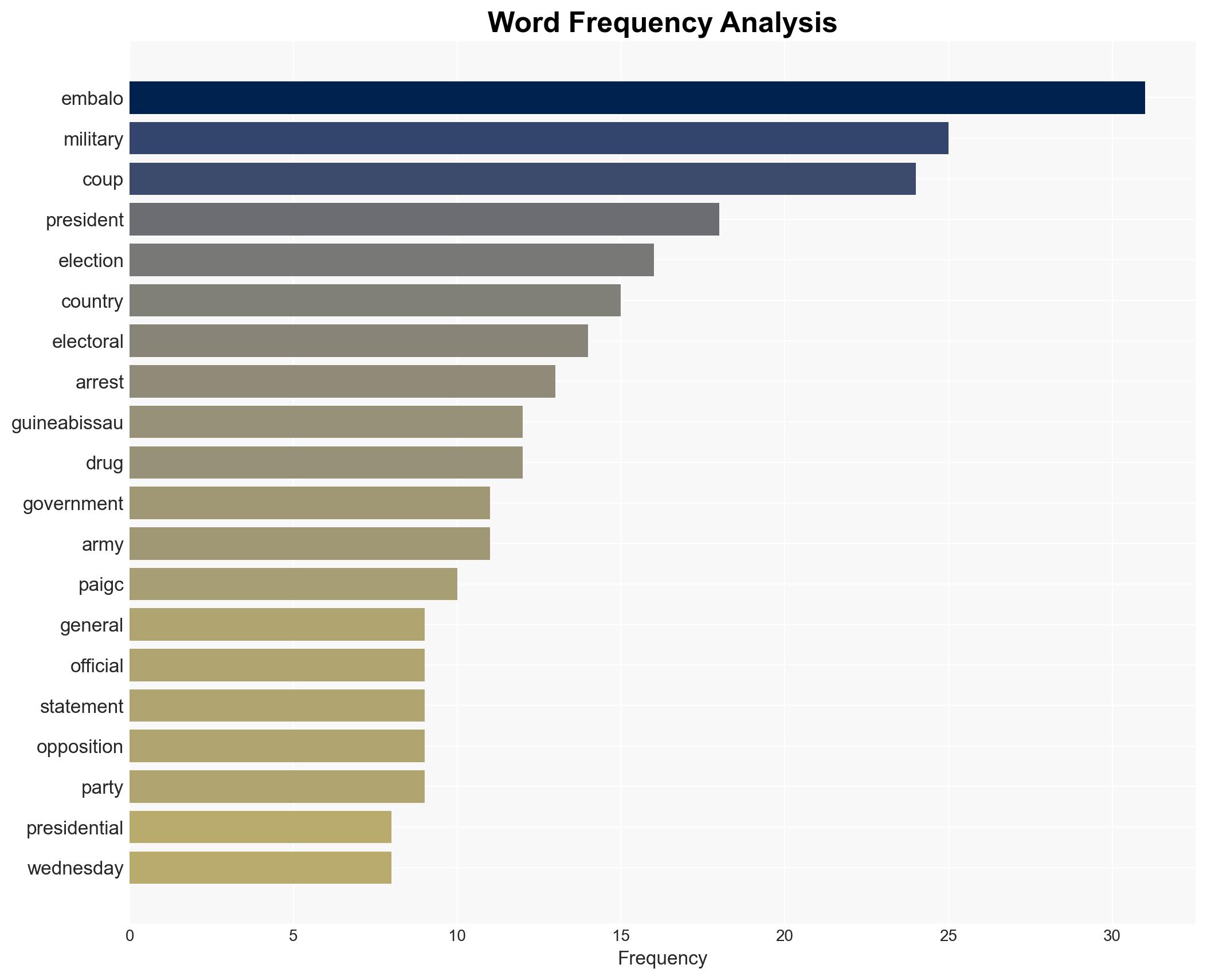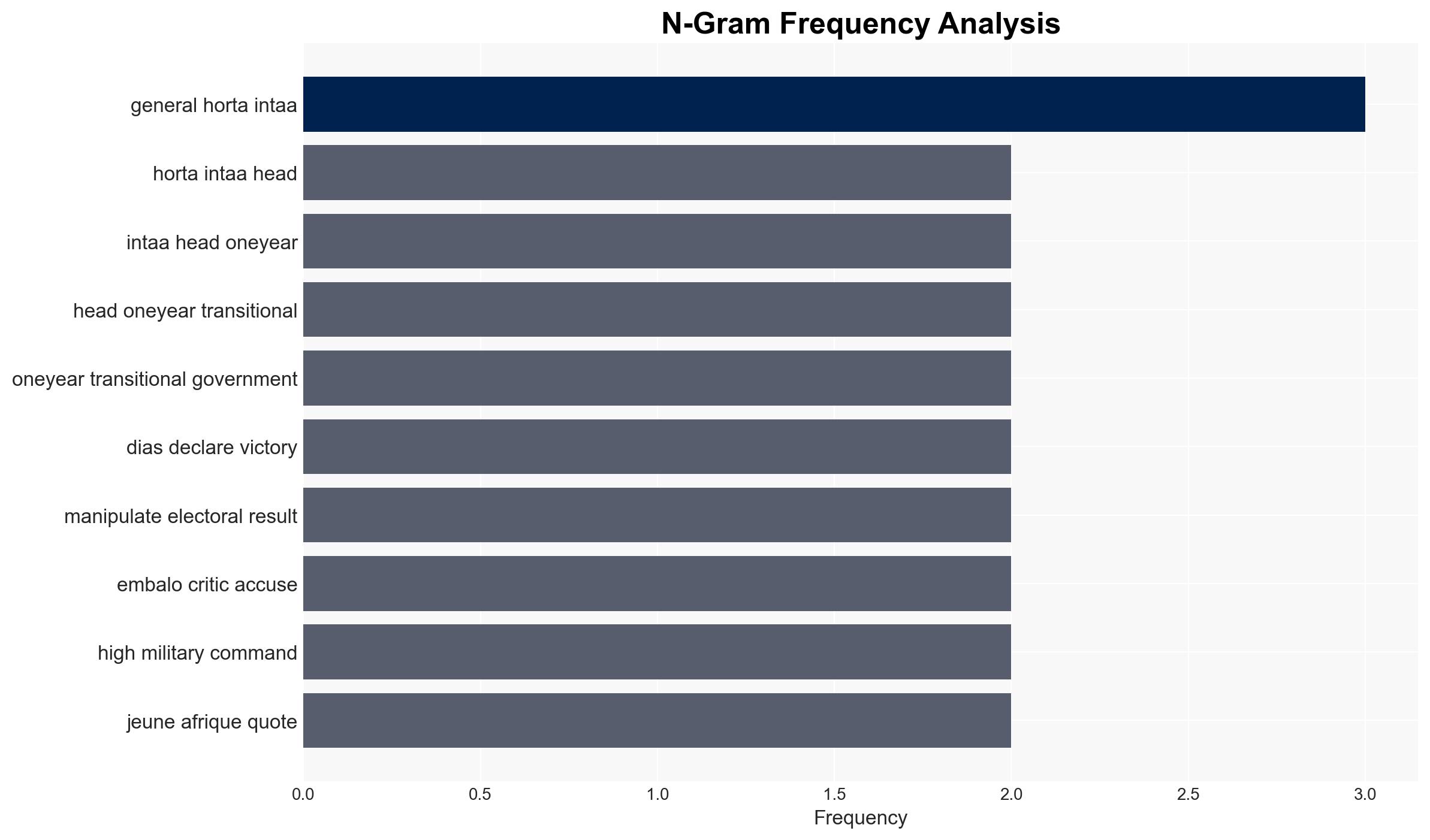Guinea-Bissau Military Coup: Implications and Future Developments Following Leadership Change
Published on: 2025-11-27
AI-powered OSINT brief from verified open sources. Automated NLP signal extraction with human verification. See our Methodology and Why WorldWideWatchers.
Intelligence Report: Guinea-Bissau coup What happened why it matters what happens next
1. BLUF (Bottom Line Up Front)
The recent military coup in Guinea-Bissau, led by General Horta Intaa, has resulted in the detention of President Umaro Sissoco Embaló and the establishment of a one-year transitional government. This development poses significant risks to regional stability and may impact the political landscape in West Africa. The situation is fluid and complex, with moderate confidence in the assessment that the coup was primarily motivated by alleged electoral manipulation. Key stakeholders include regional bodies like ECOWAS and the African Union.
2. Competing Hypotheses
- Hypothesis A: The coup was a response to genuine concerns about electoral fraud and manipulation. Supporting evidence includes the military’s justification of the coup as necessary to restore order and prevent destabilization. Contradicting evidence includes the lack of independent verification of these claims and potential ulterior motives by military leaders.
- Hypothesis B: The coup was primarily a power grab by military leaders seeking to capitalize on political instability. Supporting evidence includes the timing of the coup immediately following a contentious election and the military’s swift move to detain the president. Contradicting evidence is the military’s stated intent to stabilize the country.
- Assessment: Hypothesis B is currently better supported due to the pattern of coups in the region and the rapid consolidation of power by the military. Indicators that could shift this judgment include credible evidence of electoral fraud or international recognition of the transitional government.
3. Key Assumptions and Red Flags
- Assumptions: The military’s actions are primarily motivated by internal political dynamics; regional bodies will respond with diplomatic pressure; the transitional government will face legitimacy challenges.
- Information Gaps: Lack of independent verification of electoral fraud claims; unclear support levels for the coup among the populace; the role of external actors in the coup.
- Bias & Deception Risks: Potential bias in military statements; risk of misinformation from both coup leaders and opposition; manipulation of media narratives by interested parties.
4. Implications and Strategic Risks
The coup in Guinea-Bissau could lead to increased regional instability and influence the political dynamics in West Africa.
- Political / Geopolitical: Potential for increased tensions within ECOWAS; risk of similar actions in neighboring countries.
- Security / Counter-Terrorism: Possible increase in internal conflict; destabilization could create opportunities for extremist groups.
- Cyber / Information Space: Potential for cyber operations targeting government and military communications; misinformation campaigns.
- Economic / Social: Economic disruptions due to instability; potential impact on drug trafficking routes; social unrest due to political uncertainty.
5. Recommendations and Outlook
- Immediate Actions (0–30 days): Monitor developments closely; engage with regional partners to assess the situation; prepare contingency plans for potential evacuations.
- Medium-Term Posture (1–12 months): Strengthen partnerships with regional bodies; support initiatives for democratic governance; enhance intelligence capabilities in the region.
- Scenario Outlook:
- Best Case: Peaceful transition to a legitimate government with international support.
- Worst Case: Prolonged instability leading to regional conflict and humanitarian crisis.
- Most Likely: Continued political uncertainty with intermittent violence and international diplomatic efforts to restore order.
6. Key Individuals and Entities
- General Horta Intaa – Head of the transitional government
- President Umaro Sissoco Embaló – Detained president
- ECOWAS – Regional economic community
- African Union – Continental union
- Fernando Dias – Opposition candidate
7. Thematic Tags
National Security Threats, military coup, West Africa, political instability, electoral manipulation, regional security, drug trafficking, international diplomacy
Structured Analytic Techniques Applied
- Cognitive Bias Stress Test: Expose and correct potential biases in assessments through red-teaming and structured challenge.
- Bayesian Scenario Modeling: Use probabilistic forecasting for conflict trajectories or escalation likelihood.
- Network Influence Mapping: Map relationships between state and non-state actors for impact estimation.
- Narrative Pattern Analysis: Deconstruct and track propaganda or influence narratives.
Explore more:
National Security Threats Briefs ·
Daily Summary ·
Support us





